The Scottish government has awarded £170,000 of funding to five projects aiming to reduce emissions and tackle climate change in agriculture and food production through the Knowledge Transfer and Innovation Fund (KTIF). The projects are focusing on resource efficiency, cutting emissions, environmental performance and sustainability of agricultural holdings.
Newly Approved Projects
Agroforestry in Action 2 – Facilitated by Soil Association – £18,862.50.Following the 2021 ‘Agroforestry in Action’ (AIA) the programme will provide information on agroforestry for farmers, crofters and land managers.
Soil Health – A Route Towards Net Zero for the Scottish Livestock Industry – Facilitated by Farm Stock – £69,878.The project will look at how improved soil health can allow farming to meet the Scottish government’s climate targets.
Farmers in the Field Video Case Studies – Facilitated by Forth Resource Management – £4,374.This smaller project will create three videos showing farming’s role in Scotland’s low carbon future.
Agroecology – Facilitating Mindset Change – Facilitated by Nourish Scotland – £43,575.This project will highlight and explain agroecological farming practices to the industry. The cash will fund discussion groups of between eight to 10 farmers, as well as information to be shared through the industry at large.
Carbon Trotterprints – Facilitated by Wholesome Pigs - £35,100.The programme will involve benchmarking within the Scottish pig industry to measure and minimise the work involved on-farm to complete carbon audits and reduce any future financial support requirement. They hope to achieve this by carrying out visits to 15 farms to source the data.
Input cost challenge to continue
The challenge of coping with rising input costs is likely to remain throughout 2022, according to Quality Meat Scotland economist Stuart Ashworth.
However, inflationary pressure is growing, with consumer prices likely to rise, which he believes will help sustain the current farmgate price levels.
Beef
In his review of 2021, Ashworth explained that while beef farmers received more for their produce than in 2020, key inputs, particularly fertilisers, animal feeds and energy, have climbed steeply over the second half of 2021, which “quickly eroded the benefits of higher farmgate prices.”
Underpinning the rise in cattle price has been a tighter supply of cattle.
According to Defra, May was the only month in 2021 where ex abattoir volumes of beef were higher than the year before. The months with the tightest supply were July, October and November.
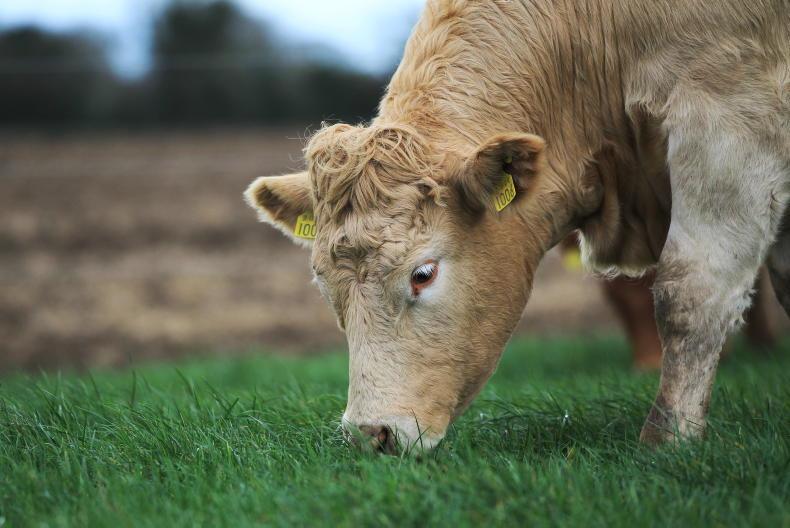
Beef supply is predicted to rise in the UK in 2022.
Tighter domestic supplies will have contributed to higher levels of imports from April to October.
The end of the Brexit transition period at the end of 2020 lead to significant falls in UK beef exports during January and February 2021, however since then, trade has recovered and during the third quarter of 2021, exports were higher than the year previous.
As a consequence, and despite the increase in imports, the volume of beef arriving on the UK market has been lower than year earlier levels for much of 2021, offering support to farmgate prices.
Increasing supply
Ashworth said that the indication from the June UK agricultural census is that slaughter volumes will increase, as the population of cattle under one year old increased by 1.6% this year. The largest contribution to this growth is female stock, some of which may be intended as replacements.
Nevertheless, it seems likely that as the year progresses, UK domestic beef production will increase unless carcase weights fall.
Looking across to the continent, the EU forecast a reduction of 0.9% in beef production during 2022, which would provide opportunities for the UK to grow beef exports to the EU. Elsewhere, the USDA is expecting significant growth in beef production in Australia and Brazil, but slightly lower production in the US itself.
Strong sheep prices
Lower volumes of lambs and ewes have helped keep prices buoyant in 2021 according to Ashworth. Indications from the June 2021 agricultural census were that the 2021 lamb crop was smaller than in 2020, particularly in England.
However, the decline in prime lamb kill between June and the end of November shows a much larger fall than the estimated lamb crop would suggest.
The expectation is consequently that there will be a significantly higher carry over of hoggets into 2022.
Similarly, the fall in the number of cull ewes and rams reaching abattoirs is much greater than the small fall in the national ewe flock would suggest leading to an expectation of growth in the GB ewe flock to be used to produce the 2022 lamb crop.
Despite Brexit causing disruption to sheepmeat exports, the proportion of sheepmeat being exported by the third quarter of 2021 was similar to levels seen the year earlier.
Farmgate prices for prime sheep have been firm across the world during 2021 and this may lead to some growth in breeding sheep numbers. The June census for Ireland, for example, showed growth of around 4% in breeding sheep numbers.
Similarly, France and Spain also recorded some modest growth in breeding sheep numbers in 2021.
Beef and Lamb New Zealand report a decline in breeding ewe numbers of 0.5% in the country. Australia is continuing to rebuild flocks after a long period of drought.
Scottish Pig Producers’ Hardship fund extended
A scheme set up to provide financial support to pig producers affected by the temporary closure of the abattoir at Brechin last year, and subsequent suspension of its China export licence, is set to be extended.
The closure of the Quality Pig Processors (QPP) plant at Brechin resulted in a backlog of pigs waiting for slaughter and the loss of its licence to export pork to China – a lucrative market for the sector.
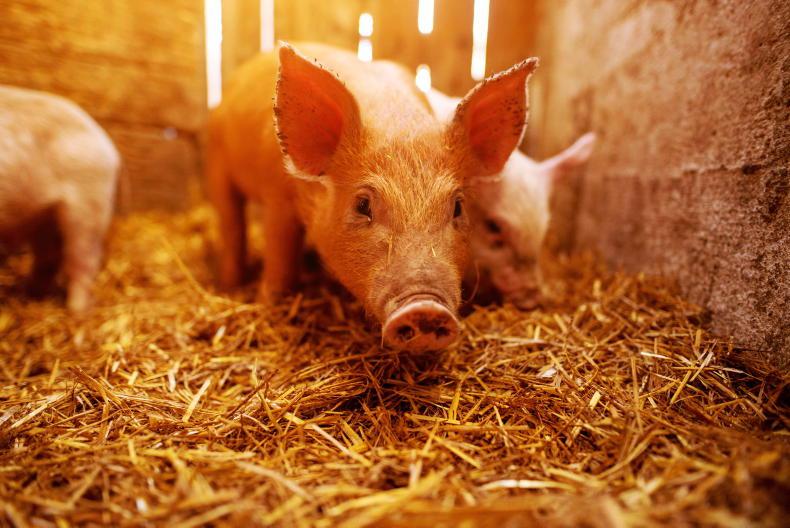
The hardship fund for farmers affected by the closure of the Brechin plant has been extended.
As the sector waits for export restrictions to be lifted, Rural Affairs Secretary Mairi Gougeon has announced an extension to the scheme with funding support of more than £680,000.
Gougeon said: “The Pig Producers’ Hardship Scheme made available last summer delivered essential funding to eligible producers during this difficult period and I am pleased to announce that we are extending this scheme, which underlines our continuous support for our livestock sector.
“The scheme will open early this year, when a further announcement will be made providing guidance for applications. I would encourage all eligible producers to submit their applications and benefit from this additional financial support.”
The executive manager of the Scottish Association Meat Wholesalers, Martin Morgan, said: “This is a very welcome move by the Scottish government, which will help to underpin the viability of the primary pigmeat supply chain in Scotland of which both the Quality Pig Processors (QPP) plant in Brechin and Robertson’s Fine Foods in Ayrshire are important customers.”
Union AMG goes online
NFU Scotland (NFUS) has decided to run February’s 2022 AGM and conference exclusively online. The union had previously been planning to hold the event in Glasgow on 10 and 11 February, with virtual proceedings being available to watch simultaneously. However, with Covid-19 cases at an exceptionally high level, an in-person event is no longer possible.
With the programme currently being finalised, those who wish to register for the online AGM and conference can go to https://www.nfus.org.uk/about-nfus/agm-2022.aspx
NFUS is looking to reschedule its annual dinner for later in the year.
The Scottish government has awarded £170,000 of funding to five projects aiming to reduce emissions and tackle climate change in agriculture and food production through the Knowledge Transfer and Innovation Fund (KTIF). The projects are focusing on resource efficiency, cutting emissions, environmental performance and sustainability of agricultural holdings.
Newly Approved Projects
Agroforestry in Action 2 – Facilitated by Soil Association – £18,862.50.Following the 2021 ‘Agroforestry in Action’ (AIA) the programme will provide information on agroforestry for farmers, crofters and land managers.
Soil Health – A Route Towards Net Zero for the Scottish Livestock Industry – Facilitated by Farm Stock – £69,878.The project will look at how improved soil health can allow farming to meet the Scottish government’s climate targets.
Farmers in the Field Video Case Studies – Facilitated by Forth Resource Management – £4,374.This smaller project will create three videos showing farming’s role in Scotland’s low carbon future.
Agroecology – Facilitating Mindset Change – Facilitated by Nourish Scotland – £43,575.This project will highlight and explain agroecological farming practices to the industry. The cash will fund discussion groups of between eight to 10 farmers, as well as information to be shared through the industry at large.
Carbon Trotterprints – Facilitated by Wholesome Pigs - £35,100.The programme will involve benchmarking within the Scottish pig industry to measure and minimise the work involved on-farm to complete carbon audits and reduce any future financial support requirement. They hope to achieve this by carrying out visits to 15 farms to source the data.
Input cost challenge to continue
The challenge of coping with rising input costs is likely to remain throughout 2022, according to Quality Meat Scotland economist Stuart Ashworth.
However, inflationary pressure is growing, with consumer prices likely to rise, which he believes will help sustain the current farmgate price levels.
Beef
In his review of 2021, Ashworth explained that while beef farmers received more for their produce than in 2020, key inputs, particularly fertilisers, animal feeds and energy, have climbed steeply over the second half of 2021, which “quickly eroded the benefits of higher farmgate prices.”
Underpinning the rise in cattle price has been a tighter supply of cattle.
According to Defra, May was the only month in 2021 where ex abattoir volumes of beef were higher than the year before. The months with the tightest supply were July, October and November.

Beef supply is predicted to rise in the UK in 2022.
Tighter domestic supplies will have contributed to higher levels of imports from April to October.
The end of the Brexit transition period at the end of 2020 lead to significant falls in UK beef exports during January and February 2021, however since then, trade has recovered and during the third quarter of 2021, exports were higher than the year previous.
As a consequence, and despite the increase in imports, the volume of beef arriving on the UK market has been lower than year earlier levels for much of 2021, offering support to farmgate prices.
Increasing supply
Ashworth said that the indication from the June UK agricultural census is that slaughter volumes will increase, as the population of cattle under one year old increased by 1.6% this year. The largest contribution to this growth is female stock, some of which may be intended as replacements.
Nevertheless, it seems likely that as the year progresses, UK domestic beef production will increase unless carcase weights fall.
Looking across to the continent, the EU forecast a reduction of 0.9% in beef production during 2022, which would provide opportunities for the UK to grow beef exports to the EU. Elsewhere, the USDA is expecting significant growth in beef production in Australia and Brazil, but slightly lower production in the US itself.
Strong sheep prices
Lower volumes of lambs and ewes have helped keep prices buoyant in 2021 according to Ashworth. Indications from the June 2021 agricultural census were that the 2021 lamb crop was smaller than in 2020, particularly in England.
However, the decline in prime lamb kill between June and the end of November shows a much larger fall than the estimated lamb crop would suggest.
The expectation is consequently that there will be a significantly higher carry over of hoggets into 2022.
Similarly, the fall in the number of cull ewes and rams reaching abattoirs is much greater than the small fall in the national ewe flock would suggest leading to an expectation of growth in the GB ewe flock to be used to produce the 2022 lamb crop.
Despite Brexit causing disruption to sheepmeat exports, the proportion of sheepmeat being exported by the third quarter of 2021 was similar to levels seen the year earlier.
Farmgate prices for prime sheep have been firm across the world during 2021 and this may lead to some growth in breeding sheep numbers. The June census for Ireland, for example, showed growth of around 4% in breeding sheep numbers.
Similarly, France and Spain also recorded some modest growth in breeding sheep numbers in 2021.
Beef and Lamb New Zealand report a decline in breeding ewe numbers of 0.5% in the country. Australia is continuing to rebuild flocks after a long period of drought.
Scottish Pig Producers’ Hardship fund extended
A scheme set up to provide financial support to pig producers affected by the temporary closure of the abattoir at Brechin last year, and subsequent suspension of its China export licence, is set to be extended.
The closure of the Quality Pig Processors (QPP) plant at Brechin resulted in a backlog of pigs waiting for slaughter and the loss of its licence to export pork to China – a lucrative market for the sector.

The hardship fund for farmers affected by the closure of the Brechin plant has been extended.
As the sector waits for export restrictions to be lifted, Rural Affairs Secretary Mairi Gougeon has announced an extension to the scheme with funding support of more than £680,000.
Gougeon said: “The Pig Producers’ Hardship Scheme made available last summer delivered essential funding to eligible producers during this difficult period and I am pleased to announce that we are extending this scheme, which underlines our continuous support for our livestock sector.
“The scheme will open early this year, when a further announcement will be made providing guidance for applications. I would encourage all eligible producers to submit their applications and benefit from this additional financial support.”
The executive manager of the Scottish Association Meat Wholesalers, Martin Morgan, said: “This is a very welcome move by the Scottish government, which will help to underpin the viability of the primary pigmeat supply chain in Scotland of which both the Quality Pig Processors (QPP) plant in Brechin and Robertson’s Fine Foods in Ayrshire are important customers.”
Union AMG goes online
NFU Scotland (NFUS) has decided to run February’s 2022 AGM and conference exclusively online. The union had previously been planning to hold the event in Glasgow on 10 and 11 February, with virtual proceedings being available to watch simultaneously. However, with Covid-19 cases at an exceptionally high level, an in-person event is no longer possible.
With the programme currently being finalised, those who wish to register for the online AGM and conference can go to https://www.nfus.org.uk/about-nfus/agm-2022.aspx
NFUS is looking to reschedule its annual dinner for later in the year.





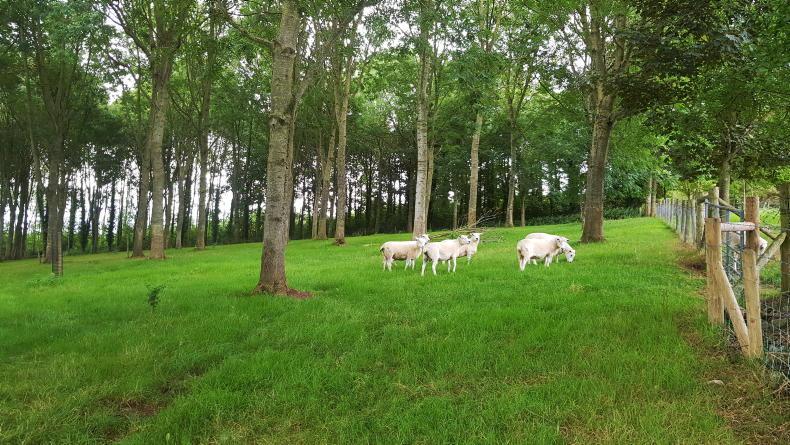




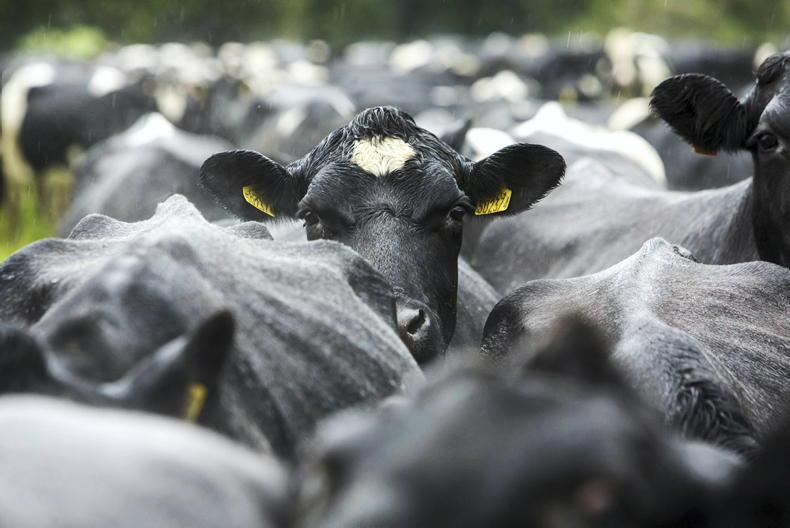
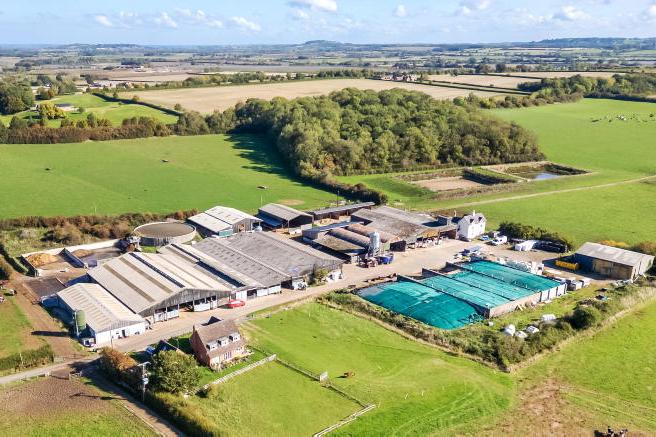
SHARING OPTIONS